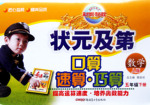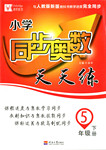题目内容
Outside our hotel in Ho Chi Minh City, Vietnam, a seemingly ancient woman waited beside the door with her hand outstretched. Every day I put my hand in hers as our eyes met. She never failed to return my smile, my grasp, and my greeting.
On the last day of our visit, I found myself alone on a busy corner across the street from our hotel. Bicycles and motorbikes rushed in front of me. As I hesitated on the sidewalk, I felt a hand on my elbow and looked down to see the smile of my small beggar friend looking up at me. She nodded her head toward the street, indicating that she would take me across. Together, we moved slowly into the chaos.
Then we moved on toward the sidewalk, where she pulled my face down to hers, kissed me on both cheeks, and then left, still smiling and waving back to me.
Traveling in poorer nations, I have witnessed a variety of ways to deal with beggars. The most common response of tourists faced with the poverty-stricken is to ignore them and focus their eyes elsewhere. I have seen people push away an outstretched hand in angry annoyance. A few may drop a few coins into the hand in a hurry, hoping that other ragged pursuers won’t immediately appear on the scene.
For many reasons, giving money is not the best response to an outstretched hand. Many world travelers have discovered that the greatest gift they can give is their time and respect. Everyone needs recognition, to be seen as worthy of being known, to feel appreciated and loved. And I believe that everyone is worthy and worth knowing.
1.The woman beggars helped the author go across the busy street because __________.
A.the author gave her material assistance
B.the author treated her kindly and friendly
C.the author would help her as a reward
D.the author was a foreigner
2.From the story, what position of the beggars in the author’s mind might be?
A.equal B.superior C.lower D.valuable
3.In common cases, people will do the following things to the beggars EXCEPT for ________.
A.pretending to see nothing
B.handing out some money
C.refusing them angrily
D.greeting them normally
4.According to the author, the most important things beggars really need are _________.
A.mercy and pity B.money and food
C.smile and greeting D.attention and respect
5.The purpose of the passage is to _________.
A.show how poor the beggars are in Vietnam
B.offer some advice on dealing with begging
C.express what we should offer the beggars
D.describe an experience with a beggar
1.B
2.A
3.D
4.D
5.C
【解析】
1.细节理解题。结合文章中的Every day I put my hand in hers as our eyes met(。每天,当我和她目光交汇时,我都会把我的手放在她的手里。)和Many world travelers have discovered that the greatest gift they can give is their time and respect…(他们所能给予的最好礼物是他们的时间与友情。每个人都需要认同,需要关注,需要感激和关爱。)可知作者并没有给woman beggars钱或其它东西,而是认同和关爱。
2.推理判断题。结合文章最后一句I believe that everyone is worthy and worth knowing(我坚信每个人都是有价值的――值得你去了解)可知在作者心目中所有的人都是平等的。
3.细节理解题。结合The most common response of tourists faced with the poverty-stricken is to ignore them and focus their eyes elsewhere. I have seen people push away an outstretched hand in angry annoyance. A few may drop a few coins into the hand in a hurry(面对穷人最常见的回应是不理睬,还有转移注意力。我曾看见有人非常恼火地把他们的伸出来的手推开。还有一些人急匆匆地把几个硬币丢在他们乞求的手掌里)可知D项不合题意。
4.细节理解题。结合Many world travelers have discovered that the greatest gift they can give is their time and respect可知答案。
5.写作目的题。作者结合自己的一次经历告诉人们:对于乞丐来说,给他们钱并不是最好的回应。他们也需要认同,需要关注,需要感激和关爱。

 状元及第系列答案
状元及第系列答案 同步奥数系列答案
同步奥数系列答案
| |||||||||||||||||||||||||||||||||||||||||||||||||||||||||||